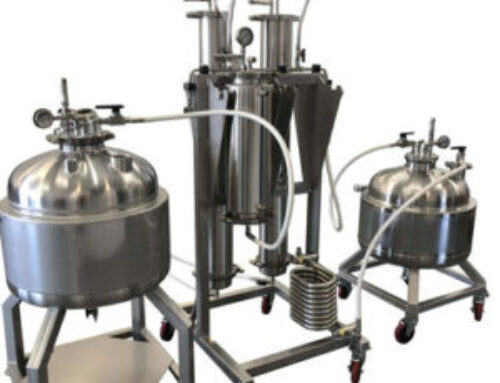Over the past few years, many consumers have come to embrace CBD, THC, and other cannabinoids as functional ingredients in beverages and edibles, yet the food and beverage industry as a whole has been slow to accept this trend. For cannabinoids to be fully accepted as ingredients by the industry, companies need to show that they are doing the scientific leg work and following standard protocols in order to demonstrate the quality and safety of their products.
I think it’s safe to say federal legalization is going to happen, given the fact that voters approved recreational or medicinal cannabis use in five states last November. Federal legalization will result in more research, clear regulations, and greater opportunities for companies to get their products on store shelves. When that time comes, the Food and Drug Administration (FDA) will likely step into an auditing role similar to what they do in standard food manufacturing, allowing them to identify gaps in food safety within the cannabis infused foods industry and begin regulating manufacturers. When that happens, the companies that will come out on top are the ones who have prioritized consumer safety and product quality through their manufacturing processes and standards.
Since hemp was legalized by the 2018 Farm Bill, the FDA has been actively educating themselves on cannabinoids to better manage and guide the food and beverage industry to ensure consumer safety. To date, the FDA has not granted Generally Recognized as Safe (GRAS) status to CBD as a food additive. Because of this, most companies producing products containing CBD are referencing state guidelines and developing systems and processes to produce safe products without federal guidance.
The cannabis infused foods industry is still relatively young but expanding rapidly, fueled by rising consumer interest in these products. As companies producing beverages or edibles have grown larger, some have hired food scientists and quality control managers to help refine and improve their processes and products. This has resulted in increasingly consistent, high-quality beverages and edibles that are safe and effective for both medical and recreational consumers. For those of us transplanted from the standard food industry to cannabis infused foods, it has generated some interesting challenges that stretch our skills and give us the chance to innovate in ways we would not have experienced working with standard food products.
Due to the grey area that cannabinoids have fallen into as an ingredient, food scientists entering the space are applying their skills and experience to an industry that still feels relatively nascent. Adding experienced food industry professionals to any company producing beverages or edibles is an important step in creating a robust food safety program and culture, leading to the high-quality products consumers expect.
With that, there are several key food safety and quality concepts that should be considered in the cannabis space. These include identifying critical parameters for raw materials and finished goods; developing appropriate, accurate testing methods for products that are different in nature than standard food products; educating cannabis industry experts and leadership on food safety; working within a uniquely arranged series of business units that are separated by state; identifying third party labs that can validate established products and processes; and establishing the support systems in each place of operation to ensure quality is consistent throughout all production regions.
Food quality experts are used to educating others on what food safety and quality means on an industry-wide level, so it is an easy transition communicating these concepts to cannabis industry leadership and production employees, though the nature of the product does put a unique spin on this aspect of quality management. Throughout the industry, there is definitely awareness and regulation of product quality in terms of the active cannabinoids, and potency is a key component of producing edibles containing CBD or THC. Without federal regulatory systems in place to educate manufacturers as to what the expected food safety standards are, it is up to company management to prioritize food safety, as well as potency, throughout the organization.
In the end, there are a number of moving parts at play when ensuring the safety and quality of cannabis infused foods. Those of us building programs for these products are using systems and tools from our experience in standard food production, while coming up with creative solutions for the unique situations created when working with cannabinoids. At the same time, we are constantly pivoting as we track the evolving research and guidance that comes with legalization. Every day brings new challenges, and as we move forward with these unique products, we continue to be at the forefront of a revolution in the food industry. We are finding more interesting foods and ways to infuse them with cannabinoids to provide customers with the benefit of reliability, consistency, quality, safety, and the best experience possible.




